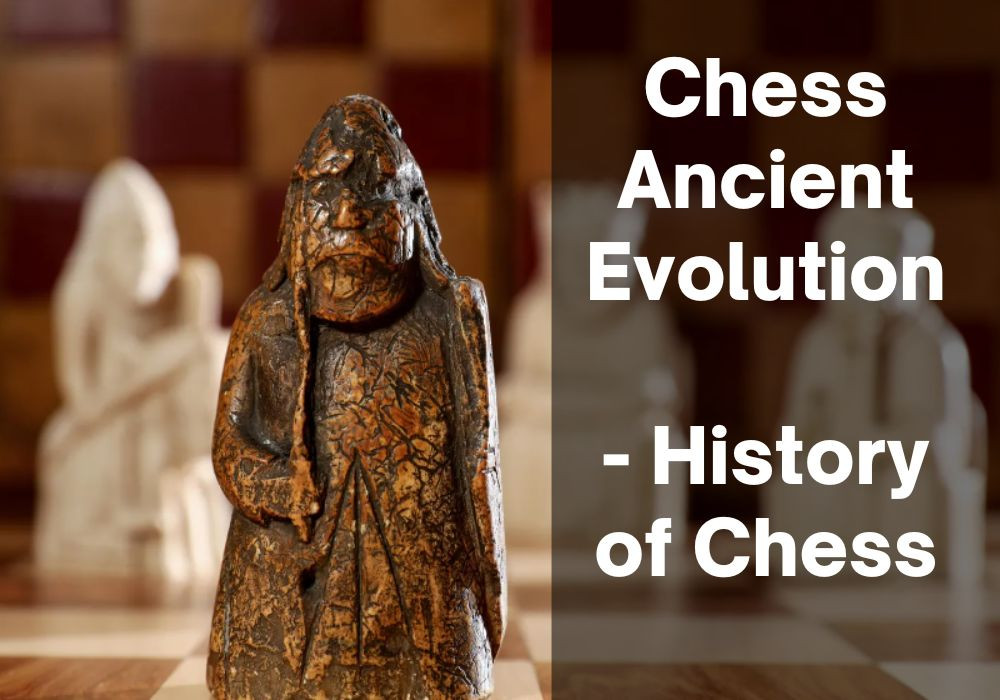

Lowest Price Guaranteed

Handmade Exceptional Quality

Subscribe to our newsletter
Be the first to hear about special offers

Chess is one of the oldest and most revered board games in the world, with a history spanning over 1,500 years. It is believed to have originated in Northern India during the Gupta Empire around the 6th century. Initially known as "chaturanga," the early form of chess represented a battle between four different types of military units—infantry, cavalry, elephants, and chariots—each controlled by a player.
From India, the game gradually spread to other parts of the world. It entered the Islamic world and underwent significant modifications, including the introduction of new pieces such as the vizier (later known as the queen) and the inclusion of geometrically shaped boards. The Islamic influence extended into Persia, where chaturanga was further refined into shatranj.
During the Islamic Age, which lasted from the 8th to the 14th centuries, chess gained immense popularity as a game of skill and strategy. It spread across the Arab world, reaching North Africa, Spain, and eventually Europe. The Moors brought chess to Spain, where it thrived under Islamic rule until the Christian Reconquista.
By the 10th century, chess had made its way into the Byzantine Empire and reached the shores of Western Europe through trade routes and cultural exchanges. The rules continued to evolve, and various regional variants of the game emerged. One significant change was the transformation of the elephant into the bishop, reflecting the evolving social structures and military strategies of the time.
In the 15th century, a series of major transformations occurred, leading to the birth of modern chess. These changes took place primarily in Southern Europe, particularly in Italy and Spain. The pawn's double-step initial move, the en passant capture rule, and the modern rules for castling were introduced during this period. The queen, now the most powerful piece on the board, acquired its modern capabilities, which greatly enhanced the strategic complexity of the game.
The spread of chess continued during the Age of Exploration. It was played by notable figures such as Leonardo da Vinci and many prominent rulers of the time. Chess clubs and societies began to form, and the first known chess book, "El Libro de los Juegos" (The Book of Games), was commissioned by King Alfonso X of Castile in the 13th century.
In the 19th century, chess underwent a significant transformation with the rise of competitive tournaments and the emergence of great players. The first international chess tournament took place in London in 1851, won by Adolf Anderssen, a German chess master. The world of chess saw the rise of champions such as Paul Morphy, Wilhelm Steinitz, and Emanuel Lasker, who laid the foundation for modern chess theory and strategy.
The 20th century witnessed further developments in chess, with the establishment of the World Chess Federation (FIDE) in 1924 and the introduction of the title of Grandmaster in 1950. The Soviet Union dominated the chess scene for many decades, producing legendary players like Mikhail Botvinnik, Anatoly Karpov, and Garry Kasparov and we offer the favorite chess set of the mikhail Tal and Bobby Fischer.
With the advent of computers, chess entered a new era. In 1997, IBM's Deep Blue defeated world champion Garry Kasparov in a historic match, marking a significant milestone in the development of artificial intelligence.
In recent years, chess has seen a resurgence in popularity, partly due to online platforms and streaming services that allow players from around the world to compete and spectate. The game continues to evolve, with new strategies, openings, and variations being explored by both human players and powerful chess engines.
Today, chess is recognized as a sport, an art form, and an intellectual pursuit. It transcends cultural boundaries and serves as a metaphor for life's complexities, teaching lessons in foresight, patience, and adaptability. The ancient game that originated in India has truly become a universal language, captivating the hearts and minds of millions worldwide.